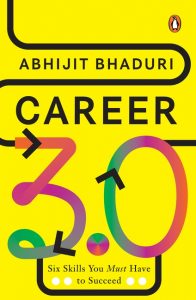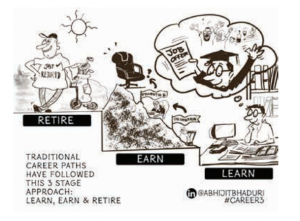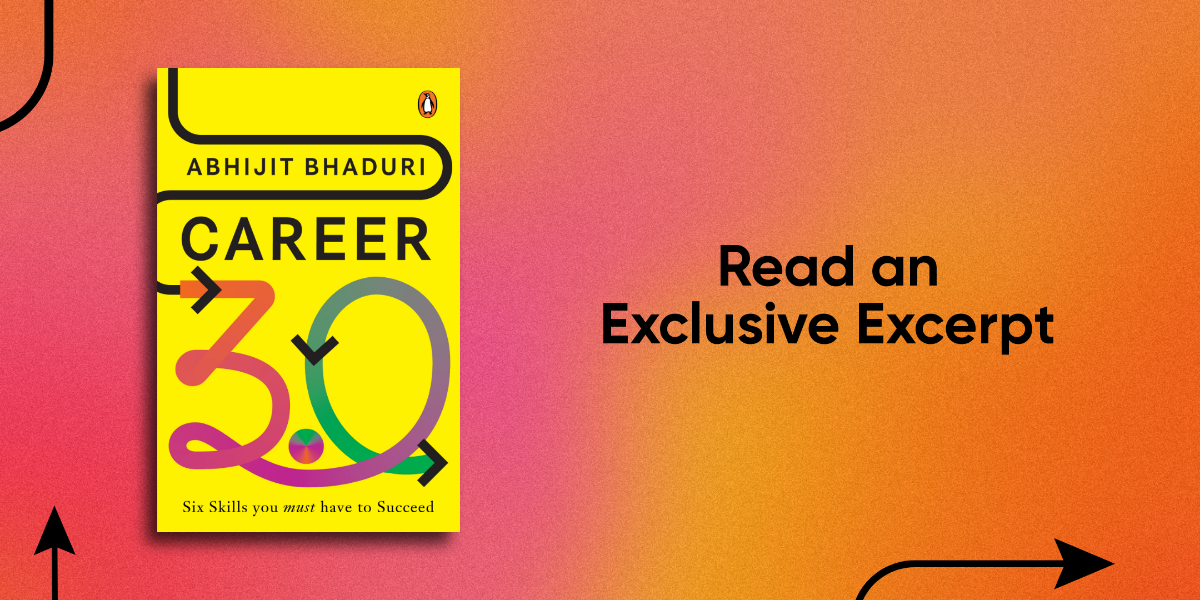Ever thought about how jobs used to be and how they are now? Abhijit Bhaduri’s ‘Career 3.0’ shows us the way careers are changing. It’s like going from having just one skill for a job to juggling three or more skills in different places. So let’s take a peek into this shift in the work world and find out which career path suits you best.

***
Career 1.0: Monetizing a Single Skill in one Ecosystem

In Career 1.0, individuals are focused on monetizing a single skill that they have developed through training or experience. This may be a skill that they have formally studied or learned through on-the-job experience. Stable workplaces with relatively few changes offer opportunities for a person to continue pursuing a career with a single employer or doing the same work for different employers. Professional sports is a good example of Career 1.0 where a single skill is monetized in one ecosystem as the rules of a game don’t really change. A professional singer spends a lifetime using one skill in one ecosystem.
Career 2.0: Monetizing a Second Skill in Two Ecosystems

In Career 2.0, individuals are monetizing a second skill, in a distinctly different ecosystem. This second skill may be something that they have formally studied or trained in, or it may be a skill that they have developed through personal interests or hobbies. A college professor who writes a bestselling book or the CEO who serves on the board of a start-up is operating in a second ecosystem.
The skills gained in an ecosystem may not be useful to succeed in the second ecosystem. That is no different from the accountant who performs as a stand-up comedian on weekends or the coder who drives an Uber to make a few extra bucks. They are all using a second skill, in a new ecosystem in a Career 2.0 model. Earning money from a skill shows how much it is worth. Having another way to make money and growing it makes people feel good about their abilities. They can do both or choose one.
Career 3.0: Monetizing Three or More Skills in Different Ecosystems

In Career 3.0, individuals are monetizing three or more skills in different ecosystems. I once met an accountant who works for a large multinational corporation (MNC). He spends his weekends cooking for a restaurant in the neighbourhood whose customers love his curries and cakes. He also plays the keyboard and drums and used to play for a band when he was a student.
The band were so successful that for a while he thought of doing that fulltime. Laughing, he adds, ‘My problem is that I enjoy being an accountant as much as I enjoy being a chef and a musician. Why limit myself?’
Paychex, an American firm providing human resources services, found in a survey that 40 per cent of workers in the US have multiple jobs, and half of Gen Z workers are splitting their time between three or more employers. They call it ‘polyworking’. Meanwhile, 33 per cent of millennials are holding down three or more jobs, compared to 28 per cent of baby boomers and 23 per cent of Gen X professionals.
There are a few key characteristics that define Career 3.0:
Curiosity: Career 3.0 comes naturally to people who are curious. They will often experiment and learn something new just to be able to figure it out. They teach themselves by watching videos, listening to experts, finding apprenticeships and attending classes. Most of all the learning by being unafraid of failure. When an opportunity comes their way, they are often prepared to grab it. These are people who are comfortable with skills that are often seen to be at two ends of a spectrum—e.g., science and coding both demand logic and are polar opposites of fields like humanities and languages. Curious people often enjoy learning something even though there is no apparent use for it. Quiz contests often bring together people who are curious about everything from Greek mythology to astronomy to sports.
Adaptability: Monetizing multiple skills requires adaptability, as individuals may need to shift between different areas of work depending on the demands of each skill. Being comfortable with ambiguity and being flexible go together. An unpredictable world that is constantly evolving needs people who are comfortable with uncertainty. It is much like driving through thick fog. The driver navigates the road ahead one metre at a time.
Mindset: Career 3.0 needs the mindset of a VC who has to quickly figure out whether the idea being pitched is a big idea that has potential—an opportunity they must not miss, or if it is a passing fad. It often means that the VC has to place multiple bets knowing that the majority of the investments will fail but that the one that succeeds will more than make up for the rest. It needs the ability to take risks and walk on a path less travelled.
Overall, the three career archetypes—Career 1.0, Career 2.0, and Career 3.0—represent different approaches to monetizing skills and building a career. While each approach has its own benefits and drawbacks, the key is to find the right balance that works for an individual’s unique strengths and goals.
***
Get your copy of Career 3.0 by Abhijit Bhaduri wherever books are sold.







